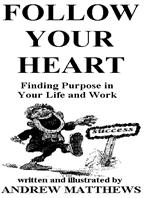题目内容
Once you put your school things___________, you'll find them easily
- A.in danger
- B.in order
- C.in detail
in danger在危险中;in order整齐,秩序井然;in detail详细地。句意:一旦你将物品放得秩序井然,你就会容易地找到他们。结合语境可知选B。
考点:短语辨析

In Germany there are different kinds of high schools.Some prepare students for workers, others prepare them for college. All schools are great places for making friends and learning German.
Short days
Most high schools in Germany begin at about 8:00 a.m. and end at 3:30 p.m. This means your morning will be busy with classes. You will have time to do homework and take part in private(私人的) clubs after school.
Formal setting
In Germany, teachers and students’ relationship is more formal than you might be used to. Teachers are respected and students must use the formal “Sie(德语:您)” when talking to teachers.
Getting to school
Most students take public transport to school or ride a bicycle. Some ares have school buses. It is not common for parents to drive students to school.
Private clubs
In many countries, schools offer official sports and after-school activities. This is less common in Germany. After-school activities are usually organized through private clubs. There are clubs for things like soccer, dance, chair, theatre and almost everything else. Once you are in Germany, ask around at school and talk to other students to find out what private clubs are in your area and meet your interests.
Different states, different schools
Each of Germany’s 16 states has its own slightly different school systems. The school system in Brandenburg will be a little different from the system in Bavaria for example. Where you live, your knowledge level and your age will decide what school you can attend.
【小题1】For high school students in Germany, Which is not the common transport to school?
| A.School buses | B.Private clubs | C.Public transports | D.Students’ bicycles |
| A.受人尊敬的 | B.令人害怕的 | C.高收入的 | D.有权势的 |
| A.all kinds of high schools are for college. |
| B.age is not important for attending schools. |
| C.students can take part in after-school activities from 8:00a.m. to 3;30p.m. |
| D.students can join private clubs to meet their interests by themselves. |
| A.German Private Clubs | B.German Public Transport |
| C.German High Schools | D.German College Systems |
As you are soon on your way to Eastern Europe, here are a few tips on what you should pack. In general, pack lightly, with only the most basic clothes. People dress casually(随便地) in Eastern Europe, so you don’t need to bring along your smartest clothing.
Batteries: If your camera, flash, or other appliances run on batteries, bring enough supply along. Certain types of batteries don’t exist in Eastern Europe, and those that do often don’t last very long.
Cash: We have found it good to have supply of small-unit U.S. bills($1and $5) to use in hard–currency stores, to buy international train tickets, etc. The hard–currency stores never seem to have the right change.
Electric Current Adapter(转换器): If you bring any appliances, remember that the electricity in Eastern Europe uses 220 volts A.C., not the standard 110 volts of North America. A 110 volts appliance will soon burn out when attached to an unchanged 220-volt plug.
Language Tools: One of Europe’s biggest challenges is communicating with the local people since their languages are so different from our own. To help overcome difficulties, you might buy phrasebooks before you go — you won’t find them once you are in Eastern Europe.
Money Belt: A money belt is especially helpful when you have many documents to carry around ( as you always do in Eastern Europe). The best one we find is made by Eagle Greek Travel Gear, 143 Cedros Ave. (P. O. box 651), Solona Beach, CA 92075 (tel. 619/755 – 9399, or toll free 800/874 – 9925) outside California.
Traveler’s Checks: These are necessary. Bring your traveler’s checks in small to medium unit ($10, $20, or $50) to change a little bit at a time, so as not to be left with a lot of local money. To be on the safe side, be sure to copy down the check numbers in two places, just in case something happens to the checks.
【小题1】How many tips are mentioned in the passage?
| A.6 | B.7 | C.8 | D.9 |
| A.Appliances. | B.Money. | C.Language. | D.Clothes. |
A. No shop in Eastern Europe accepts hard currency.
B. Travelers may need to carry many documents in Eastern Europe.
C. The electricity in Eastern Europe uses 220 volts A.C.
D. Eastern European languages can be a problem to foreign travelers.
【小题4】What’s the writer’s purpose of writing this passage?
| A.To tell you it’s not easy to stay in Eastern Europe. |
| B.To give you some advice on what you should pack when you’re in Eastern Europe. |
| C.To tell you something about the life in Eastern Europe. |
| D.To show you the life in Eastern Europe is different from that in your country. |
change
1. [V] to become different 改变;变化
2. [V] to exchange money into the money of another country 兑换
3. [U] the money that you get back when you have paid for sth giving more money than the amount it costs 找给的零钱;找头
check
1. [V] to examine sth to see if it is correct, safe or acceptable 检查;审查
2. [C] an act of making sure that sth is safe, correct or in good condition by examining it 检查;查看
3. [C] a printed form that you can write on and sign as a way of paying for sth instead of using money 支票
| A.1; 3 | B.3; 3 | C.2; 3 | D.2; 2 |
 .
.